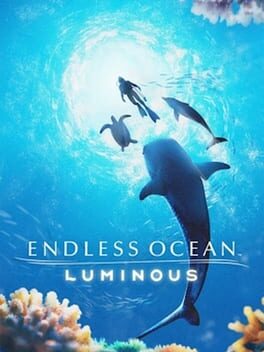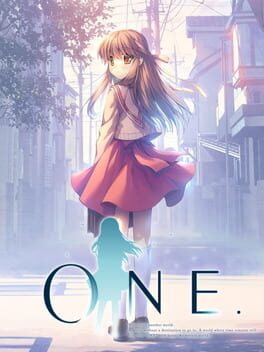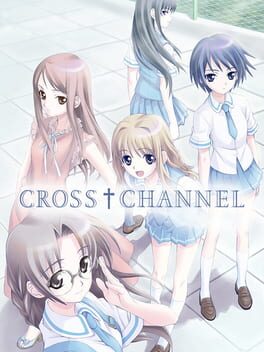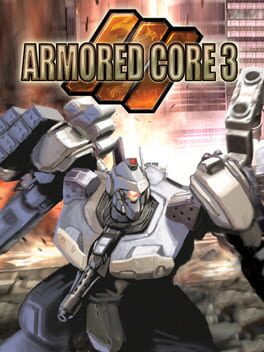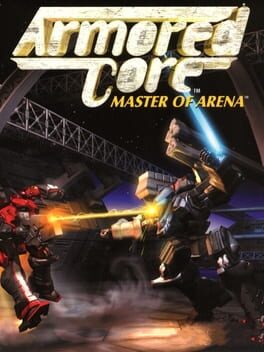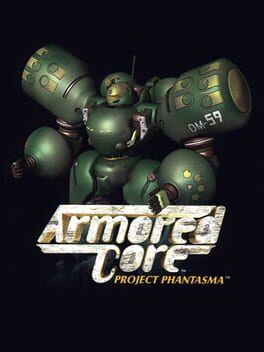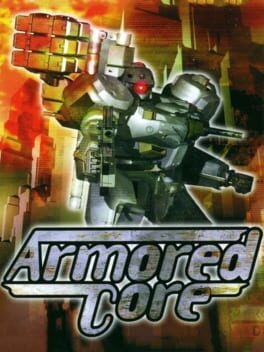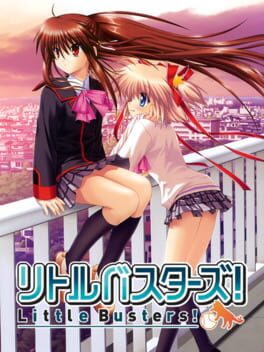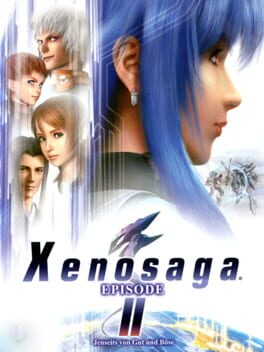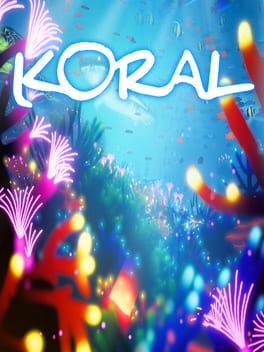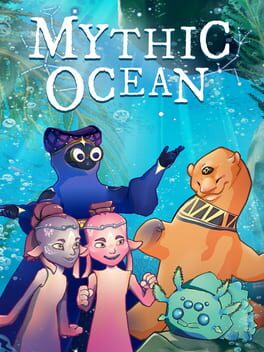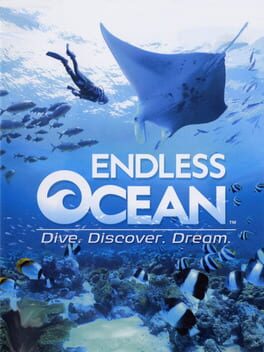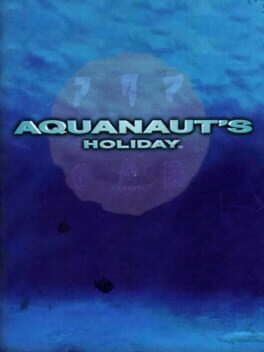booIean
78 reviews liked by booIean
Xenogears
1998
Going into Xenogears, I knew 3 things. The first was that this game was supposed to be Final Fantasy VII, a game I played just a few months ago and became an instant favorite. The second is that due to a hard locked release schedule, the team didn't have enough time to properly "finish" Xenogears. The third is that it's basically just Evangelion.
I also felt it was fair to assume that this was gonna be a favorite. What I didn't assume was that this game would challenge the way I think about my relationships. At the age of 22, I didn't really think I would be able to have my worldview shifted by stories anymore. That was a thing for my teenage years. I get now this was a stupid thing to think.
I struggle to think about what I can even say about a classic like this that's unique or fresh. It's an old beloved RPG, everything that can be said about it has. So in order to talk about it I have to get vulnerable. Hi. My name is Mads. I have BPD.
The way being borderline has impacted my relationships is almost all internal. I seek validation, I want to belong, to have an impact on the people I love. Nothing I or they can do is able to convince me of that. I feel incomplete. Consequently, I feel my relationships are hollow because of me. I'm not able to get as intimate as I'd want to. I'm not able to ask for a shoulder to lean on. It feels selfish. It feels undeserved.
There's a scene about a third into this game that hammered home just how much this game made me feel seen. Without going into specifics, it involves 2 of the main cast members talking about how incomplete they feel. One describes their acts of kindness as a selfish act because they don't feel they belong, and all they hope to get out of that kindness is a place to be. The other validates that it's ok to act kindly out of selfishness. Eventually, in trying to fill yourself up, you'll complete yourself with the lives of those around you.
Another scene in disc 2, which was a flashback regarding the history of one of the main characters and explaining why they are the way they are, filled me with an intense urge to call my abusive mom and say "I'm sorry." I can't explain that. I have nothing to be sorry for. It's not my fault she treats me the way she does. I don't know what else to do besides talk about it, because god knows I have no interest in following through on that.
As far as this game not being finished goes, well, I don't think it's fair to call it that. It's a front to back story. It covers all the beats it needs to in order to function. Sure it's not fully realized, but I think it's okay to not be whole.
I also felt it was fair to assume that this was gonna be a favorite. What I didn't assume was that this game would challenge the way I think about my relationships. At the age of 22, I didn't really think I would be able to have my worldview shifted by stories anymore. That was a thing for my teenage years. I get now this was a stupid thing to think.
I struggle to think about what I can even say about a classic like this that's unique or fresh. It's an old beloved RPG, everything that can be said about it has. So in order to talk about it I have to get vulnerable. Hi. My name is Mads. I have BPD.
The way being borderline has impacted my relationships is almost all internal. I seek validation, I want to belong, to have an impact on the people I love. Nothing I or they can do is able to convince me of that. I feel incomplete. Consequently, I feel my relationships are hollow because of me. I'm not able to get as intimate as I'd want to. I'm not able to ask for a shoulder to lean on. It feels selfish. It feels undeserved.
There's a scene about a third into this game that hammered home just how much this game made me feel seen. Without going into specifics, it involves 2 of the main cast members talking about how incomplete they feel. One describes their acts of kindness as a selfish act because they don't feel they belong, and all they hope to get out of that kindness is a place to be. The other validates that it's ok to act kindly out of selfishness. Eventually, in trying to fill yourself up, you'll complete yourself with the lives of those around you.
Another scene in disc 2, which was a flashback regarding the history of one of the main characters and explaining why they are the way they are, filled me with an intense urge to call my abusive mom and say "I'm sorry." I can't explain that. I have nothing to be sorry for. It's not my fault she treats me the way she does. I don't know what else to do besides talk about it, because god knows I have no interest in following through on that.
As far as this game not being finished goes, well, I don't think it's fair to call it that. It's a front to back story. It covers all the beats it needs to in order to function. Sure it's not fully realized, but I think it's okay to not be whole.
One.
2023
I wish I had more to say about this one but honestly, within the few days that have passed since completing it most of my immediate memories have come and passed. It's a shame that I feel the way I do about ONE. because I'm actually a really big fan of Kanon. In fact, I think I'm a stronger defender of the early Jun Maeda material in that game than most, but Jesus Christ is his writing here rough.
Hisaya's routes are generally solid enough - I think it's universally agreed upon that Misaki is the strongest route here, close enough in quality to the lesser Kanon routes that I almost wish it had been held off and implemented into that release. Mio's route is at best pleasant and inoffensive but truly just passable. Akane's is heartfelt if a little substanceless. Frankly, the less said about Nagamori and Shiina's routes, the better. Nanase is a lesser version of every tsundere route in every Key game that would come to pass. Literally why is Shun's route even here?
The biggest problem with ONE. is protagonist Kohei, who frankly isn't really a character so much as a set of reactions to fit whatever tone the author wants for the individual route at hand. His personality is so baseless and flexible that you never get the feeling that he's consistent across these stories. It becomes hard to care about or get emotionally invested in his experiences in the overarching narrative because there's not much tangible about Kohei Orihara as a person. The melodrama of ONE. doesn't feel like overarching character arcs for its heroines, so much as plot beats that happen, are addressed, and discarded thereafter.
Frankly I don't understand what the purpose of this remake (really bordering on remaster as very little was actually remade beyond the visual and musical assets) was if they weren't going to address how shallow the vast majority of the stories within are. It's at least halfway interesting as a historical piece, in which you can trace the ideas for a myriad of later Key works, most especially Kanon, CLANNAD, and Angel Beats!, but that's about all it has going on in current day. That would fine if this was discussing the original 1998 release, but as a remake this essentially fails the purpose of remaking a visual novel. If my opinion is worth anything to you - Misaki and Akane's routes are legitimately worth your time, and the rest... do what you want. You're not missing much.
Hisaya's routes are generally solid enough - I think it's universally agreed upon that Misaki is the strongest route here, close enough in quality to the lesser Kanon routes that I almost wish it had been held off and implemented into that release. Mio's route is at best pleasant and inoffensive but truly just passable. Akane's is heartfelt if a little substanceless. Frankly, the less said about Nagamori and Shiina's routes, the better. Nanase is a lesser version of every tsundere route in every Key game that would come to pass. Literally why is Shun's route even here?
The biggest problem with ONE. is protagonist Kohei, who frankly isn't really a character so much as a set of reactions to fit whatever tone the author wants for the individual route at hand. His personality is so baseless and flexible that you never get the feeling that he's consistent across these stories. It becomes hard to care about or get emotionally invested in his experiences in the overarching narrative because there's not much tangible about Kohei Orihara as a person. The melodrama of ONE. doesn't feel like overarching character arcs for its heroines, so much as plot beats that happen, are addressed, and discarded thereafter.
Frankly I don't understand what the purpose of this remake (really bordering on remaster as very little was actually remade beyond the visual and musical assets) was if they weren't going to address how shallow the vast majority of the stories within are. It's at least halfway interesting as a historical piece, in which you can trace the ideas for a myriad of later Key works, most especially Kanon, CLANNAD, and Angel Beats!, but that's about all it has going on in current day. That would fine if this was discussing the original 1998 release, but as a remake this essentially fails the purpose of remaking a visual novel. If my opinion is worth anything to you - Misaki and Akane's routes are legitimately worth your time, and the rest... do what you want. You're not missing much.
Cross Channel
2018
Hello, to anyone who reads this. I’m not sure if you can hear these words, brought to you from my heart to this keyboard, and from these keys to this screen - but, if you can read me out there, uh, thank you for taking the time to listen in. I’m カケラSKY, and I’d like to share this moment in time with you to talk about this game I played recently that had a pretty tremendous impact on me. If you can read this, if you can feel me… why don’t you stay a while? Let’s talk about CROSS†CHANNEL, and my experience with it, together… or, I guess, I’ll talk to you, and I hope it reaches you out there. I hope something I have to say about this experience touches you, even if I won’t ever really know.
CROSS†CHANNEL, developed and published by the now defunct Flying Shine, is the fourth major eroge work written by legendary scenario author Romeo Tanaka, known previously for his classic debut title Kana ~Imouto~, as well as the much-beloved Kazoku Keikaku. As of right now, I’ve only played the first few hours of Kana, which I really enjoyed - and I plan to complete that work in due time - but I am otherwise new to his work. Despite this, CROSS†CHANNEL is a game that has haunted me and had my curiosity on edge for quite some time. Having studied Japanese for a solid amount of time now, Tanaka’s work was always a bridge I’d meant to cross when the time felt right, if only due to the fact that I’d heard how challenging and creative his prose gets - and how deeply flawed the majority of the translations of his work into English have been.
CROSS†CHANNEL is unfortunately the most troubled of all of his projects in this transition, having received three English localizations, each of which are at best largely unrepresentative of Tanaka’s pen and littered with inaccuracies, and at worst outright nonsensical and abhorrent. I cannot in good faith recommend any of these experiences as a suitable means to engage with CROSS†CHANNEL. Even if there isn’t much they could do to sway the graphics, music and events from telling the elements of the story the translated words cannot, there is little hint of Tanaka’s masterful language and wordplay in even the most capable moments of these localizations. I don’t mean to speak poorly of the efforts of the fans who have attempted to localize this title in the past, Ixrec the least of which considering how early into his translating career this project came. There are elements of CROSS†CHANNEL that simply do not work outside of the Japanese text without the removal of subtext, depth, nuance, or even outright explicit second or third meanings; some instances ranging as important as titles of entire chapters. I will not claim to be a master of the Japanese language at the time which I have experienced CROSS†CHANNEL - far from it, there were large chunks of the game I spent nose-deep in cultural context notes, dictionaries, and Wikipedia pages… but I feel that this drive to learn, to seek out the heart of this experience, crossing borders in order to grasp this work, that effort was so integral to both the themes of communication and the effort to understand one another that the plot leans on so heavily, as well as making the experience I had playing CROSS†CHANNEL for my first time a truly challenging, powerful, and memorable one.
Simply put, Tanaka’s prose is arguably the highlight of the entire CROSS†CHANNEL experience, and I say that as someone still confidently in the “student” phase of their life with the language. He has such a way with words, sentence structure, kanji and kana play, subtext, cultural worldliness, pacing, and emotional tug-and-pull that for me, falling in love with his work felt akin to a true coming-of-age moment where I feel like surmountable progress has been made in my studies, and a deeper and more appreciative love of the Japanese language has been achieved through reading his work. Arguably the next most powerful aspect of CROSS†CHANNEL’s presentation is Funczion SOUNDS’ fantastic soundtrack, marked by cool, distant, and often minimal and ambient compositions. Some of my favorites include title screen theme “Crisscross”, the ethereal and mysterious “Starry Heavens” and “Fated”, and of course, the haunting, heart-crushing “Signal”, a piece simply unlike anything I’ve heard in the medium - the vocals-only piece feeling like something out of late-series Evangelion more than your standard eroge fare. Matsuryu’s art is rather beautiful, particularly notable for the almost watercolor-like pastel palette and grounded but memorable character designs. The warm lighting and great framing of the CGs left several scenes particularly fresh in my mind, with the sweet scene of Nanaka holding Taichi to her chest being probably my favorite. All of these elements set a well-lit stage with which CROSS†CHANNEL allows its plot and cast to shine, and they shine brilliantly.
The story of CROSS†CHANNEL focuses on the perspective of one Taichi Kurosu, a student at the Gunjo Academy - framed as an academic institution, but in actuality a means for the government to isolate students seen as unfit for assimilation to larger Japanese society. Taichi and the other members of the school’s broadcasting club have just returned from a camping trip that he devised in a failed attempt to reconcile ill-will between the group in the hopes of reigniting their lost friendships, only to find their city completely and utterly barren. The eight students basically immediately break off into their own cliques and isolated activities, but Taichi remains determined to both bring these people together regardless of either their individual traumas or feelings on the matter, as well as help club president Misato Miyasumi complete the broadcasting tower atop the school’s roof and send a message by airwaves to the outside world in hopes of discovering what has happened to humanity. However, the plot of the game takes a quick turn and opens up its true intentions for the story to follow - this week of return to Gunjo Academy is looping, and the members of the student body lose their memories and development gained that week, resetting back to the fragmented place they left off at the start of the game. This initially includes even Taichi himself, and as a result CROSS†CHANNEL manages to pull off a route-based eroge system that is in fact also linear in progression… or, if you choose to look at it this way, canonically it resets in the way visual novels would metaphysically upon selecting “New Game” after each completed route.
The purpose of Gunjo as a host for the mentally “unfit” is a theme that permeates all of CROSS†CHANNEL. The eight students within its walls are deeply complicated, emotionally and neurologically distressed people, and from understanding this immediately arises one of the core themes of the narrative - although some members of the cast may be moved by Taichi, or come to some appreciation of him, the goal of reuniting this group of people is a task far out of his control, and frankly it’s none of his business to attempt to enforce that change to begin with. Several members of the cast have legitimate reasons to not engage with one another, particularly with Taichi himself - and ultimately it is their call, their choice to make, as to whether or not that bridge should be crossed. And yet, he persists, and this is when another element of CROSS†CHANNEL that I found so unique is also brought to light: Taichi Kurosu is arguably the most broken, most morally condemnable person in the academy, and it is through his eyes we parse this barren, empty world. Society at large has written off the Gunjo student body as monsters, and it’s a word they’re not afraid to lob at Taichi from time to time. And why shouldn’t they? Even if some find his PC-9800-era eroge protagonist humor and absurdities oddly charming, there’s still much to be said about his arrogance, possessiveness, dictatorial sense of command, and a deep streak of manic violence seemingly brought on by the sight of blood. CROSS†CHANNEL does much to show Taichi at his absolute worst, sinking to the depths of truly reprehensible actions… but it also shows him at some of his best.
For all of the awful things Taichi says and does, he’s still very much a human - no matter what anyone says about him, they cannot strip that from him. No one can. Although he is arguably the furthest removed from what is deemed “acceptable humanity” by the government, he still makes great and genuine effort to connect with the people he considers close to him. He tries to shield people he cares about from truths that he knows might hurt them in the name of protection. He suppresses much of his own trauma from the cast, and even the player themselves, for the sake of enforcing a lighthearted tone where the infinitely-looping week at Gunjo can be spent lackadaisically. And most importantly, despite his insistence to himself and through the narration of his point of view that he wishes dearly for a world where he can be entirely alone, removed from everything and everyone he feels strips an individual of their “real humanity”... he’s shown to genuinely love people, and spending time with them. Every individual member of the cast is shown to struggle with expressing their feelings, their desire to be understood, given sanctity, or saved from the weight of their own baggage - arguably, none more so than Taichi himself. There is a feeling through much of CROSS†CHANNEL that in spite of monologue upon monologue, page upon page of vindictive rambling from Taichi, he’s still suppressing how his heart really feels, and how badly he wishes to be something he already is - a living, breathing member of the human race.
“Connection” is the core of CROSS†CHANNEL, and it is explored in every possible avenue to tremendous effect. The obvious urban horror and denpa influences on CROSS†CHANNEL’s narrative invert the traditional stand-bys of passed rumors, broadcasted paranoia, and overwhelming waves of noise, thought and sound for the almost cosmic terror of radio silence. I’d liken the sinking dread of each week of CROSS†CHANNEL to an experience like Ever17, where the true horror comes from the loneliness and emptiness felt in the vacant corridors of LeMU, trapped and abandoned with no S.O.S. response in sight. Where in Ever17 the claustrophobia of the underwater theme park comes into play, the opposite may be said of CROSS†CHANNEL. There could not be enough space for Taichi et al to run around in, and in typical teenage fantasy fashion, all the hedonistic and self-serving tendencies come out to play. Piles and piles of stolen junk food, driving around in the principal’s sports car, and lots and lots of gross, messy sex on school grounds. In fact, with such a dangerous and carnally-driven presence as Taichi around, there’s a feeling of distrust or fear of being too close to our point of view that comes off of many characters. Sex is indeed another facet of CROSS†CHANNEL’s themes of connection, and I’ll comfortably call the 18+ scenes among the best I’ve read in the medium. Tanaka will often treat sexual intercourse in a mechanical, analytical way - one of the earlier consensual moments treating two peoples’ joined organs as a singular nervous system, a true joining of mind and soul into a single mechanism - perfect connection. Sex is weaponized as power, as a means to try and coerce mutual harmony and understanding, and as a hazy grasp at one’s own identity and a reclamation of things lost in the scramble to figure out what that looks like. Love is often present in these scenes but in a way that feels hopeless, and oftentimes like an intentional stroke of “obligation” between two characters to create a grounds for that theme of communication. Whether or not some members of this cast are people capable of that kind of love… that’s for you to analyze and decide. But the fact that they can express that desire, the fact that they have the potential to feel, to want, to crave, and to yearn - those are all undeniable proofs of their humanity.
To get back to the core themes of “connection” and “communication”, the structure of CROSS†CHANNEL essentially demands that they be addressed in order to maintain kinetic progression. You as the player do have the potential to waste weeks away stuck in the same section of the loop, and in order to progress further requires the actual completion of each route. All of these routes require Taichi digging into the pasts and psyches of the route’s lead heroine - forging a connection with them that if not permanent is in that moment tangible. Very subtle shifts occur with each step through the loops, with ever-so-slight bumps and shifts leading further and further down the road to the true ending - and with it, the dilapidation of the show Taichi put on at the very start. As the plot progresses, the world deteriorates, metaphorically speaking .The drama and open terror of the cast’s circumstances becomes ever more real and pressing, tensions rise higher and higher as more and more awful truths are revealed and pasts are dug into, and most of all - we as an audience as exposed to more and more context and background revolving around the group, most especially Taichi. Simple exposure to a handful of scenes from Taichi’s formative years immediately shifts entire dynamics, plot points, and angles with which to view the story askew, and therein lies one of the strongest components of CROSS†CHANNEL’s meta-narrative: Taichi is having done to him through our eyes what he is trying to do to the cast. We are scraping into his memories, his thoughts, his mind, in the hopes of understanding what he has been so reluctant to accept and understand about himself - we are discovering the human life of Taichi Kurosu, a young man who despite himself, despite his so-called ideals, wishes deeply to be understood. As the full picture begins to become clear, and as CROSS†CHANNEL begins its final act, this aspect of the story truly begins to take form into something both absolutely unique from storytelling and thematic perspective across this entire medium, and also deeply moving, personal, and profound.
For the sake of not robbing you of the experience of witnessing how the events of Gunjo Academy’s infinite week play out, I won’t dip into spoiler territory here - but please, note that I firmly believe CROSS†CHANNEL to have one of the most impactful, powerful endings to any story I’ve ever read. It is at this moment, listener, if you’re still with me, that I believe this crossing of our signals is beginning to fade… so I’ll try to leave you with something to think about before I end my broadcast.
In being an artist, in being someone who tries to express themselves, and in being someone who has had their fair share of bouts with mental health and traumatic experiences, I can attest to many of the feelings expressed in the text of CROSS†CHANNEL. I’ve had plenty of times where I’ve struggled with the feeling that the things I do to share, express, and explore myself in the world ultimately land in the infinite void of radio static. I’ve felt silly for trying to pursue recreational experiences that ultimately don’t add anything to a resume, or a degree, or an advancement of my socioeconomic position. I’ve felt like I’ve had no future before. I’ve even felt like I don’t deserve to be alongside other members of the human race, like I was unfit for love and care the same way I desperately tried to show the people I cared about that they were loved and cared for. I have always, always felt stupid when I get too wordy or passionately expressive about the things I care about, things that moved me or that I was affected by. But in stark contrast to that, I’ve been allotted amazing luck in finding amazing friends, family and loved ones who don’t compromise in showing me the humanity and the goodness that I should’ve been able to see in the mirror all along. There’s a CG that shows up a few times in the game where Taichi and Yoko are displayed in a mirror in the school bathroom, Taichi’s eyes completely void of emotion or feeling… and I can’t say that’s a feeling I haven’t felt before, but it’s also one I don’t feel anymore. Everyone has the right to try and get out there and express themselves. Everyone has the right to try and be understood. Everyone has the right to put art, music, writing, performances, and yes, erotic visual novel computer games out there with the intent of shouting into some cloudy, vast world, “is there anyone alive out there?” Everyone has the right to cross channels with someone else, no matter how brief that window, and know that we as people have the ability to touch each others’ hearts. We may not ever truly, fully understand another person, we may not even ever truly understand ourselves, but we have an obligation as a singular human race to explore, to think, to love, to know, and to touch upon those crosses in signals, those flickers of mutuality, and respond, “we are alive”. CROSS†CHANNEL’s most recent release comes with the subtitle “for all people”, and I cannot think of a better way to possibly summarize its intent.
This is a static moment in time, that will continue to remain well after I've typed it in the hopes of connecting with you. I won't know if you read this unless we connect somehow, and you have no obligation to reach out and make that happen. As long as you receive this broadcast, and you've read all that I've had to express and emote to you... I am truly grateful. This is where my line continues in another direction as yours, forming an "X" of trajectories where we met in a brief pocket of time.
So, I ask in the hopes that you hear this…
Is there anyone alive out there?
Do you feel the way I do?
Until we cross channels again.
I’ll see you next week.
CROSS†CHANNEL, developed and published by the now defunct Flying Shine, is the fourth major eroge work written by legendary scenario author Romeo Tanaka, known previously for his classic debut title Kana ~Imouto~, as well as the much-beloved Kazoku Keikaku. As of right now, I’ve only played the first few hours of Kana, which I really enjoyed - and I plan to complete that work in due time - but I am otherwise new to his work. Despite this, CROSS†CHANNEL is a game that has haunted me and had my curiosity on edge for quite some time. Having studied Japanese for a solid amount of time now, Tanaka’s work was always a bridge I’d meant to cross when the time felt right, if only due to the fact that I’d heard how challenging and creative his prose gets - and how deeply flawed the majority of the translations of his work into English have been.
CROSS†CHANNEL is unfortunately the most troubled of all of his projects in this transition, having received three English localizations, each of which are at best largely unrepresentative of Tanaka’s pen and littered with inaccuracies, and at worst outright nonsensical and abhorrent. I cannot in good faith recommend any of these experiences as a suitable means to engage with CROSS†CHANNEL. Even if there isn’t much they could do to sway the graphics, music and events from telling the elements of the story the translated words cannot, there is little hint of Tanaka’s masterful language and wordplay in even the most capable moments of these localizations. I don’t mean to speak poorly of the efforts of the fans who have attempted to localize this title in the past, Ixrec the least of which considering how early into his translating career this project came. There are elements of CROSS†CHANNEL that simply do not work outside of the Japanese text without the removal of subtext, depth, nuance, or even outright explicit second or third meanings; some instances ranging as important as titles of entire chapters. I will not claim to be a master of the Japanese language at the time which I have experienced CROSS†CHANNEL - far from it, there were large chunks of the game I spent nose-deep in cultural context notes, dictionaries, and Wikipedia pages… but I feel that this drive to learn, to seek out the heart of this experience, crossing borders in order to grasp this work, that effort was so integral to both the themes of communication and the effort to understand one another that the plot leans on so heavily, as well as making the experience I had playing CROSS†CHANNEL for my first time a truly challenging, powerful, and memorable one.
Simply put, Tanaka’s prose is arguably the highlight of the entire CROSS†CHANNEL experience, and I say that as someone still confidently in the “student” phase of their life with the language. He has such a way with words, sentence structure, kanji and kana play, subtext, cultural worldliness, pacing, and emotional tug-and-pull that for me, falling in love with his work felt akin to a true coming-of-age moment where I feel like surmountable progress has been made in my studies, and a deeper and more appreciative love of the Japanese language has been achieved through reading his work. Arguably the next most powerful aspect of CROSS†CHANNEL’s presentation is Funczion SOUNDS’ fantastic soundtrack, marked by cool, distant, and often minimal and ambient compositions. Some of my favorites include title screen theme “Crisscross”, the ethereal and mysterious “Starry Heavens” and “Fated”, and of course, the haunting, heart-crushing “Signal”, a piece simply unlike anything I’ve heard in the medium - the vocals-only piece feeling like something out of late-series Evangelion more than your standard eroge fare. Matsuryu’s art is rather beautiful, particularly notable for the almost watercolor-like pastel palette and grounded but memorable character designs. The warm lighting and great framing of the CGs left several scenes particularly fresh in my mind, with the sweet scene of Nanaka holding Taichi to her chest being probably my favorite. All of these elements set a well-lit stage with which CROSS†CHANNEL allows its plot and cast to shine, and they shine brilliantly.
The story of CROSS†CHANNEL focuses on the perspective of one Taichi Kurosu, a student at the Gunjo Academy - framed as an academic institution, but in actuality a means for the government to isolate students seen as unfit for assimilation to larger Japanese society. Taichi and the other members of the school’s broadcasting club have just returned from a camping trip that he devised in a failed attempt to reconcile ill-will between the group in the hopes of reigniting their lost friendships, only to find their city completely and utterly barren. The eight students basically immediately break off into their own cliques and isolated activities, but Taichi remains determined to both bring these people together regardless of either their individual traumas or feelings on the matter, as well as help club president Misato Miyasumi complete the broadcasting tower atop the school’s roof and send a message by airwaves to the outside world in hopes of discovering what has happened to humanity. However, the plot of the game takes a quick turn and opens up its true intentions for the story to follow - this week of return to Gunjo Academy is looping, and the members of the student body lose their memories and development gained that week, resetting back to the fragmented place they left off at the start of the game. This initially includes even Taichi himself, and as a result CROSS†CHANNEL manages to pull off a route-based eroge system that is in fact also linear in progression… or, if you choose to look at it this way, canonically it resets in the way visual novels would metaphysically upon selecting “New Game” after each completed route.
The purpose of Gunjo as a host for the mentally “unfit” is a theme that permeates all of CROSS†CHANNEL. The eight students within its walls are deeply complicated, emotionally and neurologically distressed people, and from understanding this immediately arises one of the core themes of the narrative - although some members of the cast may be moved by Taichi, or come to some appreciation of him, the goal of reuniting this group of people is a task far out of his control, and frankly it’s none of his business to attempt to enforce that change to begin with. Several members of the cast have legitimate reasons to not engage with one another, particularly with Taichi himself - and ultimately it is their call, their choice to make, as to whether or not that bridge should be crossed. And yet, he persists, and this is when another element of CROSS†CHANNEL that I found so unique is also brought to light: Taichi Kurosu is arguably the most broken, most morally condemnable person in the academy, and it is through his eyes we parse this barren, empty world. Society at large has written off the Gunjo student body as monsters, and it’s a word they’re not afraid to lob at Taichi from time to time. And why shouldn’t they? Even if some find his PC-9800-era eroge protagonist humor and absurdities oddly charming, there’s still much to be said about his arrogance, possessiveness, dictatorial sense of command, and a deep streak of manic violence seemingly brought on by the sight of blood. CROSS†CHANNEL does much to show Taichi at his absolute worst, sinking to the depths of truly reprehensible actions… but it also shows him at some of his best.
For all of the awful things Taichi says and does, he’s still very much a human - no matter what anyone says about him, they cannot strip that from him. No one can. Although he is arguably the furthest removed from what is deemed “acceptable humanity” by the government, he still makes great and genuine effort to connect with the people he considers close to him. He tries to shield people he cares about from truths that he knows might hurt them in the name of protection. He suppresses much of his own trauma from the cast, and even the player themselves, for the sake of enforcing a lighthearted tone where the infinitely-looping week at Gunjo can be spent lackadaisically. And most importantly, despite his insistence to himself and through the narration of his point of view that he wishes dearly for a world where he can be entirely alone, removed from everything and everyone he feels strips an individual of their “real humanity”... he’s shown to genuinely love people, and spending time with them. Every individual member of the cast is shown to struggle with expressing their feelings, their desire to be understood, given sanctity, or saved from the weight of their own baggage - arguably, none more so than Taichi himself. There is a feeling through much of CROSS†CHANNEL that in spite of monologue upon monologue, page upon page of vindictive rambling from Taichi, he’s still suppressing how his heart really feels, and how badly he wishes to be something he already is - a living, breathing member of the human race.
“Connection” is the core of CROSS†CHANNEL, and it is explored in every possible avenue to tremendous effect. The obvious urban horror and denpa influences on CROSS†CHANNEL’s narrative invert the traditional stand-bys of passed rumors, broadcasted paranoia, and overwhelming waves of noise, thought and sound for the almost cosmic terror of radio silence. I’d liken the sinking dread of each week of CROSS†CHANNEL to an experience like Ever17, where the true horror comes from the loneliness and emptiness felt in the vacant corridors of LeMU, trapped and abandoned with no S.O.S. response in sight. Where in Ever17 the claustrophobia of the underwater theme park comes into play, the opposite may be said of CROSS†CHANNEL. There could not be enough space for Taichi et al to run around in, and in typical teenage fantasy fashion, all the hedonistic and self-serving tendencies come out to play. Piles and piles of stolen junk food, driving around in the principal’s sports car, and lots and lots of gross, messy sex on school grounds. In fact, with such a dangerous and carnally-driven presence as Taichi around, there’s a feeling of distrust or fear of being too close to our point of view that comes off of many characters. Sex is indeed another facet of CROSS†CHANNEL’s themes of connection, and I’ll comfortably call the 18+ scenes among the best I’ve read in the medium. Tanaka will often treat sexual intercourse in a mechanical, analytical way - one of the earlier consensual moments treating two peoples’ joined organs as a singular nervous system, a true joining of mind and soul into a single mechanism - perfect connection. Sex is weaponized as power, as a means to try and coerce mutual harmony and understanding, and as a hazy grasp at one’s own identity and a reclamation of things lost in the scramble to figure out what that looks like. Love is often present in these scenes but in a way that feels hopeless, and oftentimes like an intentional stroke of “obligation” between two characters to create a grounds for that theme of communication. Whether or not some members of this cast are people capable of that kind of love… that’s for you to analyze and decide. But the fact that they can express that desire, the fact that they have the potential to feel, to want, to crave, and to yearn - those are all undeniable proofs of their humanity.
To get back to the core themes of “connection” and “communication”, the structure of CROSS†CHANNEL essentially demands that they be addressed in order to maintain kinetic progression. You as the player do have the potential to waste weeks away stuck in the same section of the loop, and in order to progress further requires the actual completion of each route. All of these routes require Taichi digging into the pasts and psyches of the route’s lead heroine - forging a connection with them that if not permanent is in that moment tangible. Very subtle shifts occur with each step through the loops, with ever-so-slight bumps and shifts leading further and further down the road to the true ending - and with it, the dilapidation of the show Taichi put on at the very start. As the plot progresses, the world deteriorates, metaphorically speaking .The drama and open terror of the cast’s circumstances becomes ever more real and pressing, tensions rise higher and higher as more and more awful truths are revealed and pasts are dug into, and most of all - we as an audience as exposed to more and more context and background revolving around the group, most especially Taichi. Simple exposure to a handful of scenes from Taichi’s formative years immediately shifts entire dynamics, plot points, and angles with which to view the story askew, and therein lies one of the strongest components of CROSS†CHANNEL’s meta-narrative: Taichi is having done to him through our eyes what he is trying to do to the cast. We are scraping into his memories, his thoughts, his mind, in the hopes of understanding what he has been so reluctant to accept and understand about himself - we are discovering the human life of Taichi Kurosu, a young man who despite himself, despite his so-called ideals, wishes deeply to be understood. As the full picture begins to become clear, and as CROSS†CHANNEL begins its final act, this aspect of the story truly begins to take form into something both absolutely unique from storytelling and thematic perspective across this entire medium, and also deeply moving, personal, and profound.
For the sake of not robbing you of the experience of witnessing how the events of Gunjo Academy’s infinite week play out, I won’t dip into spoiler territory here - but please, note that I firmly believe CROSS†CHANNEL to have one of the most impactful, powerful endings to any story I’ve ever read. It is at this moment, listener, if you’re still with me, that I believe this crossing of our signals is beginning to fade… so I’ll try to leave you with something to think about before I end my broadcast.
In being an artist, in being someone who tries to express themselves, and in being someone who has had their fair share of bouts with mental health and traumatic experiences, I can attest to many of the feelings expressed in the text of CROSS†CHANNEL. I’ve had plenty of times where I’ve struggled with the feeling that the things I do to share, express, and explore myself in the world ultimately land in the infinite void of radio static. I’ve felt silly for trying to pursue recreational experiences that ultimately don’t add anything to a resume, or a degree, or an advancement of my socioeconomic position. I’ve felt like I’ve had no future before. I’ve even felt like I don’t deserve to be alongside other members of the human race, like I was unfit for love and care the same way I desperately tried to show the people I cared about that they were loved and cared for. I have always, always felt stupid when I get too wordy or passionately expressive about the things I care about, things that moved me or that I was affected by. But in stark contrast to that, I’ve been allotted amazing luck in finding amazing friends, family and loved ones who don’t compromise in showing me the humanity and the goodness that I should’ve been able to see in the mirror all along. There’s a CG that shows up a few times in the game where Taichi and Yoko are displayed in a mirror in the school bathroom, Taichi’s eyes completely void of emotion or feeling… and I can’t say that’s a feeling I haven’t felt before, but it’s also one I don’t feel anymore. Everyone has the right to try and get out there and express themselves. Everyone has the right to try and be understood. Everyone has the right to put art, music, writing, performances, and yes, erotic visual novel computer games out there with the intent of shouting into some cloudy, vast world, “is there anyone alive out there?” Everyone has the right to cross channels with someone else, no matter how brief that window, and know that we as people have the ability to touch each others’ hearts. We may not ever truly, fully understand another person, we may not even ever truly understand ourselves, but we have an obligation as a singular human race to explore, to think, to love, to know, and to touch upon those crosses in signals, those flickers of mutuality, and respond, “we are alive”. CROSS†CHANNEL’s most recent release comes with the subtitle “for all people”, and I cannot think of a better way to possibly summarize its intent.
This is a static moment in time, that will continue to remain well after I've typed it in the hopes of connecting with you. I won't know if you read this unless we connect somehow, and you have no obligation to reach out and make that happen. As long as you receive this broadcast, and you've read all that I've had to express and emote to you... I am truly grateful. This is where my line continues in another direction as yours, forming an "X" of trajectories where we met in a brief pocket of time.
So, I ask in the hopes that you hear this…
Is there anyone alive out there?
Do you feel the way I do?
Until we cross channels again.
I’ll see you next week.
Armored Core 3
2002
Seldom is a game devoured by me quite like 'Armored Core 3', and this has left me feeling a little undercut on my task here. I can't remember the last time I beat a game this fast, let alone sat down for 16 hours across two days to do nothing but play it. Maybe I’m a depressed neet, or maybe this game is just goated, who can really say for sure? At any rate, upon reflection on my time with this cult classic there's honestly so little of FromSoftware's work here that I feel is worth criticising, and while all my game reviews have done an excellent job in making me feel totally useless, here I worry that this piece will be me grossly wasting your time beyond previous levels, dearest reader. That’s not supposed to be an insult to the game, mind you, just my writing ability. This is all because although 'Armored Core 3' is far from the most profound work in this fabled developer's catalogue, it has put the mecha series into an ascendancy which holds so much potential that it leaves me hungering for more in a way that I have never felt with previous entries, which is going to make this review seem more like me verbally gushing ceaselessly from every orifice because I’ve properly noticed the beginning of something great before it’s full form physically causes that phenomena to occur.
Now that I’ve overly drawn out the worst opening of my entire critical output on the internet, this is a good time to start by stating that mechanically speaking, this is the best title yet. Naturally. All but barring only one glaring balancing issue. The game is as smooth as the series has ever been, with a great selection of weapons and parts, as well as great potential for detailed builds in its welcome array of optional parts. The addition of ranged left arm weapons and the economic leniency underpinning the whole experience means I got into customising a variety of ACs in this game more than any other instalment. However, builds that involve overheating are just simply too strong. Most bossfights in this game are of course other ACs, not to mention the whole alternative progression of the Arena mode, many of which are simply left in the dust due to certain weapons which generate loads of heat. Paired with a flamethrower, these selections are hilariously overpowered and I simply refused to touch them unless I got into a battle that was really chewing me up quite badly. Such fights did not, however, include Ace funnily enough—despite everything I had heard about him—of whom ya girl sent to the own-zone in one short attempt. I'm definitely not proud, nor editing this review post publication to include me bragging, you don't have any evidence because I am a perfect princess. Other than that though, no notes, still an excellent combat system with tons of nuance and a great mechanic-system relationship.
From the offset of the game's very impressively animated opening short, the presentation of '3' is the most oddly distinct part of it to me given how much it controls and often looks like—superficially, at least—the Generation 2 titles, while still decidedly pulp there's an emerging angelic coldness to the tone of the game that is truly discerning the series from it's mecha peers. Choirs peering through like blinding white gleams of sunshine over the indifferent concrete monoliths of electronic beats, these textures cascade over peerless, aimless metal in one of the more elegant science fiction aesthetics of the Playstation 2. As a nice technical aside, 'Armored Core 3' boasts Dolby pro logic II surround sound which really brings the best out of the mix in music and SFX, resulting in probably the best sounding machine gun of any 2000s action game. FromSoftware's work here truly illuminates a vision of what 'Armored Core' was to be all this time, and while continuing to excel in the ludically thrilling battles the series has always done well, it is strange that I have so much more to praise about the artfulness found in the direction of 'Armored Core 3', but this really was, in my identifications, the true beginning of FromSoftware's iconic and hauntingly picturesque moments. Such a word by popular outlets limited only to their hack and slash titles, under-recognised is it in their older projects such as this, but the framing of some sections is so strong that I'd forget to even whinge about map reuse. In the final leg of the game, hurtling toward the final set of missions, a sortie sees the player taking on a goliath MT, captured in the reduction of the 4:3 tunnel vision, the metal beast sets above a sea of sand, wings outstretched. The moment you look up to lock it into your FCS, and the image is cast of the desperate glide across the wasteland Arena map—now devoid of the visual noise it once had, a clean, static battlefield of endless soft oranges and metal monoliths—is such a moment of spectacle for a game of 2002 that is to such ends rarely so elegantly and subtly framed even today. Still undeniably pulpy—an attitude heightened in effectiveness across time with it's safely played texture work and environment scales given the hardware—'Armored Core 3' is the elevation of the series in all presentational respects, resulting in a remarkably well paced and artfully keen experience.
Mission quality, variety and purpose here is far and away the best of the series thus far, in fact, I'd go as far as to say there are no letdowns. The worst a sortie gets in 'Armored Core 3' is forgettable, and even then not frequently. The variety of Areas have been sorted in conceptual factors by the separate sections of the game's new setting, the underground city of Layered. Yes, this is a reboot trying to retell the same story, but it does so with so much more specificity in world building. The 'Armored Core' of 97' was by no means bad at this element, with its cold writing, barren locations and dehumanised presentation, but '3' achieves such things with more compelling premise of an AI controlled, lulled civilisation, like 'Arx Fatalis' by way of 'The Matrix', and defined mission locations that give character to each descending level of Layered to better inform how life there truly comes together. This means each level possess an inherent attribute of environmental storytelling that is so accessible to inference; the highest level is a nature deck featuring what appear to be falsified ecosystems, hosting a few personal favourite missions such as the bossfight mentioned before as well as a thrilling thievery operation on a sunken ship. Beneath this layer though is the more residential city areas, banal transit places like highways and mazes of grey-guarded roads where one mission asks you to quite literally just be a big annoying robot to lure out security forces in your disruption of the vapid commute. The game skips the commercial and jets straight for the appropriately industrial in the lowest layers, giving a genuine and well textured feeling of progressing more forward to the predictable threat of the AI Controller gone amuck in the metal heart of the city.
While maybe a trite advancement in the narrative, the motivations of the AI antagonist are positively not so, perhaps those who played 'Master of Arena' will recognise the beat being revised here, but a creature of automation manufacturing jet fueled, commercially militant violence in the light of it's hopelessness at the prospect of humanity seeing anything other than the metal funnel they meander submissively in under-earth is so elegant a connection to the broader themes properly initiated in 2000s 'Armored Core 2' that it makes the enchanting final cutscene of '3' all the more a perfect closure, in brutally harmonic correlation with the instances of fellow Ravens turning against you when the winds of change that follow you brush past their tender feathers. Truly one of the studio's greats, and a daring stage set for the future.
Now that I’ve overly drawn out the worst opening of my entire critical output on the internet, this is a good time to start by stating that mechanically speaking, this is the best title yet. Naturally. All but barring only one glaring balancing issue. The game is as smooth as the series has ever been, with a great selection of weapons and parts, as well as great potential for detailed builds in its welcome array of optional parts. The addition of ranged left arm weapons and the economic leniency underpinning the whole experience means I got into customising a variety of ACs in this game more than any other instalment. However, builds that involve overheating are just simply too strong. Most bossfights in this game are of course other ACs, not to mention the whole alternative progression of the Arena mode, many of which are simply left in the dust due to certain weapons which generate loads of heat. Paired with a flamethrower, these selections are hilariously overpowered and I simply refused to touch them unless I got into a battle that was really chewing me up quite badly. Such fights did not, however, include Ace funnily enough—despite everything I had heard about him—of whom ya girl sent to the own-zone in one short attempt. I'm definitely not proud, nor editing this review post publication to include me bragging, you don't have any evidence because I am a perfect princess. Other than that though, no notes, still an excellent combat system with tons of nuance and a great mechanic-system relationship.
From the offset of the game's very impressively animated opening short, the presentation of '3' is the most oddly distinct part of it to me given how much it controls and often looks like—superficially, at least—the Generation 2 titles, while still decidedly pulp there's an emerging angelic coldness to the tone of the game that is truly discerning the series from it's mecha peers. Choirs peering through like blinding white gleams of sunshine over the indifferent concrete monoliths of electronic beats, these textures cascade over peerless, aimless metal in one of the more elegant science fiction aesthetics of the Playstation 2. As a nice technical aside, 'Armored Core 3' boasts Dolby pro logic II surround sound which really brings the best out of the mix in music and SFX, resulting in probably the best sounding machine gun of any 2000s action game. FromSoftware's work here truly illuminates a vision of what 'Armored Core' was to be all this time, and while continuing to excel in the ludically thrilling battles the series has always done well, it is strange that I have so much more to praise about the artfulness found in the direction of 'Armored Core 3', but this really was, in my identifications, the true beginning of FromSoftware's iconic and hauntingly picturesque moments. Such a word by popular outlets limited only to their hack and slash titles, under-recognised is it in their older projects such as this, but the framing of some sections is so strong that I'd forget to even whinge about map reuse. In the final leg of the game, hurtling toward the final set of missions, a sortie sees the player taking on a goliath MT, captured in the reduction of the 4:3 tunnel vision, the metal beast sets above a sea of sand, wings outstretched. The moment you look up to lock it into your FCS, and the image is cast of the desperate glide across the wasteland Arena map—now devoid of the visual noise it once had, a clean, static battlefield of endless soft oranges and metal monoliths—is such a moment of spectacle for a game of 2002 that is to such ends rarely so elegantly and subtly framed even today. Still undeniably pulpy—an attitude heightened in effectiveness across time with it's safely played texture work and environment scales given the hardware—'Armored Core 3' is the elevation of the series in all presentational respects, resulting in a remarkably well paced and artfully keen experience.
Mission quality, variety and purpose here is far and away the best of the series thus far, in fact, I'd go as far as to say there are no letdowns. The worst a sortie gets in 'Armored Core 3' is forgettable, and even then not frequently. The variety of Areas have been sorted in conceptual factors by the separate sections of the game's new setting, the underground city of Layered. Yes, this is a reboot trying to retell the same story, but it does so with so much more specificity in world building. The 'Armored Core' of 97' was by no means bad at this element, with its cold writing, barren locations and dehumanised presentation, but '3' achieves such things with more compelling premise of an AI controlled, lulled civilisation, like 'Arx Fatalis' by way of 'The Matrix', and defined mission locations that give character to each descending level of Layered to better inform how life there truly comes together. This means each level possess an inherent attribute of environmental storytelling that is so accessible to inference; the highest level is a nature deck featuring what appear to be falsified ecosystems, hosting a few personal favourite missions such as the bossfight mentioned before as well as a thrilling thievery operation on a sunken ship. Beneath this layer though is the more residential city areas, banal transit places like highways and mazes of grey-guarded roads where one mission asks you to quite literally just be a big annoying robot to lure out security forces in your disruption of the vapid commute. The game skips the commercial and jets straight for the appropriately industrial in the lowest layers, giving a genuine and well textured feeling of progressing more forward to the predictable threat of the AI Controller gone amuck in the metal heart of the city.
While maybe a trite advancement in the narrative, the motivations of the AI antagonist are positively not so, perhaps those who played 'Master of Arena' will recognise the beat being revised here, but a creature of automation manufacturing jet fueled, commercially militant violence in the light of it's hopelessness at the prospect of humanity seeing anything other than the metal funnel they meander submissively in under-earth is so elegant a connection to the broader themes properly initiated in 2000s 'Armored Core 2' that it makes the enchanting final cutscene of '3' all the more a perfect closure, in brutally harmonic correlation with the instances of fellow Ravens turning against you when the winds of change that follow you brush past their tender feathers. Truly one of the studio's greats, and a daring stage set for the future.
'Master of Arena' made me feel a little silly for most of what I said about 'Project Phantasma', as I realise now there was little actual innovation I needed to find the mechanics and systems of the first generation 'Armored Core' engaging again. Instead, 'Master of Arena' boasts better pacing, mission quality and another simple but still compelling narrative dressing to make this easily the best of FromSoftware's output on the original Playstation.
Of the titular notion, the Arena mode in this game has become more eloquently entwined with the selection of missions rather than feeling like an odd side gig. I never resented that feeling but I wouldn't have ever guessed how much I'd appreciate a more directed and paced inclusion as we see here, motivation to do it felt far less intrinsic as it did in 'Project Phantasma', who's generous economy made it more a training ground than a side hustle. 'Master of Arena', eager to maintain an approachable figure to those not loading a memory card, solves this with it's more visionary integration, making the game more enticing to play for long stretches as well as keeping the designers from having to do much more number crunching.
The aforementioned missions the Arena dances with in 'Armored Core: Master of Arena' are of course, just like the previous expansion, well learned of the lessons of the previous, and thus are a small array of Generation 1's finest. There was only one which I found frustrating or overlong, and that was in a good way, which shall be talked about soon, but first is credit to be given to the presentational qualities of these maps. These Playstation titles have never had poor soundtracks by any means, but I heard a noticeable increase in the quality of the techno I was hearing here than the other entries, and while levels don't look drastically better than anything in 'Phantasma', there's far less forgettable blurs of small yet sparse areas found in the first entry, and the environments of most levels has something worth noting about it, be it some quirk of design or just a very sound atmosphere.
Attention must be given to the final act of this game which, good god above, has maybe one of the hardest things this studio has put to disc. At least you could skip Nine-Ball in the debut game, but this time there was no running away from what is maybe one of the hardest boss fights I've done in a good while. The Nine-Balls[s] and Seraph are an utterly grueling prototype of the FromSoftware endurance fight and they were the singular frustrating and overlong part of this game, but to be perfectly honest, it is—to put it academically—metal as fuck. Packed in with a neat twist reveal to spice up what has been a simple tale of revenge to a backdrop of the same, unmoved hyper-capitalist dystopia all the entries have been in at this point, the dialogue and voice acting are genuinely really awesome building up to the wild fight itself.
So that's Generation 1 wrapped up for me, not bad. This is the only entry I feel much interest in maybe returning to one day and that's definitely worth something. That was a lot of fun, hopefully Nine-Ball stays down for now, that would be nice.
Of the titular notion, the Arena mode in this game has become more eloquently entwined with the selection of missions rather than feeling like an odd side gig. I never resented that feeling but I wouldn't have ever guessed how much I'd appreciate a more directed and paced inclusion as we see here, motivation to do it felt far less intrinsic as it did in 'Project Phantasma', who's generous economy made it more a training ground than a side hustle. 'Master of Arena', eager to maintain an approachable figure to those not loading a memory card, solves this with it's more visionary integration, making the game more enticing to play for long stretches as well as keeping the designers from having to do much more number crunching.
The aforementioned missions the Arena dances with in 'Armored Core: Master of Arena' are of course, just like the previous expansion, well learned of the lessons of the previous, and thus are a small array of Generation 1's finest. There was only one which I found frustrating or overlong, and that was in a good way, which shall be talked about soon, but first is credit to be given to the presentational qualities of these maps. These Playstation titles have never had poor soundtracks by any means, but I heard a noticeable increase in the quality of the techno I was hearing here than the other entries, and while levels don't look drastically better than anything in 'Phantasma', there's far less forgettable blurs of small yet sparse areas found in the first entry, and the environments of most levels has something worth noting about it, be it some quirk of design or just a very sound atmosphere.
Attention must be given to the final act of this game which, good god above, has maybe one of the hardest things this studio has put to disc. At least you could skip Nine-Ball in the debut game, but this time there was no running away from what is maybe one of the hardest boss fights I've done in a good while. The Nine-Balls[s] and Seraph are an utterly grueling prototype of the FromSoftware endurance fight and they were the singular frustrating and overlong part of this game, but to be perfectly honest, it is—to put it academically—metal as fuck. Packed in with a neat twist reveal to spice up what has been a simple tale of revenge to a backdrop of the same, unmoved hyper-capitalist dystopia all the entries have been in at this point, the dialogue and voice acting are genuinely really awesome building up to the wild fight itself.
So that's Generation 1 wrapped up for me, not bad. This is the only entry I feel much interest in maybe returning to one day and that's definitely worth something. That was a lot of fun, hopefully Nine-Ball stays down for now, that would be nice.
An excellent expansion, with it's only major flaw being a lack of innovation. Perhaps that is a little harsh, but, while I did enjoy my time with this, by the end I've now tired a little of the standard combat in the PlayStation 'Armored Core' games. 'Project Phantasma' is easily more enjoyable than it's jumping off point though, and if you wanted more it will deliver greatly with a much more consistent array of levels, each more structurally interesting and layered than most of which consisted the original 'Armored Core'.
The narrative as well is far more put together, with better established, endearingly one dimensional characters like Sumika and Stinger, the latter of whom makes for some excellent boss encounters. It's still the same campy fun, though this time more coherent and dressed with more interesting missions. There is some very funny dialogue which gave me a nice giggle but I feel like it'll be a while before the plot and characters of these games really become appealing to me beyond this very 'video gamey' acknowledgment. Still, nothing wrong with that at all, but the almost eerie desolation of FromSoftware's environment work here does a sound enough job of putting me on level with the series' 'corporate death-valley' world concept that I find oddly intriguing in ways that make me feel as if it's a idea worthy of more than this.
The greatest success of 'Project Phantasma' is most definitely the inclusion of 'Arena' mode. Fighting other ACs was by far the most fun of the first entry and having a dedicated mode where you can contend with a hefty, diverse playlist of enemy AC fights in maps of your choosing which wont punish you for failure is not only great fun in a vacuum, but is bolstered by a satisfying leaderboard vertical progression climb and economic incentive, which makes it easier to have a stable means to getting new parts for your mech, encouraging experimentation. I didn't look up any recommendations for parts this time and while I stuck stubbornly with my tetrapods crawlies because I am bloody terrible at these games, I changed up my weapons and arms significantly more because the Arena not only demanded I do so, but lovingly handed me the wares I wished for.
On a final note, by no means is this review to suggest that 'Project Phantasma' is lazy. Not at all, even if it is mostly more of the same, additions like the Arena on the macro scale gives a change in pace and structure that does the game many favours even if it all still plays the same. On the micro scale, little things like how there's a small commitment to even the Arena maps having little gimmicks like being able to blow up warehouses that act as cover show that 'Project Phantasma' is made from great passions and learned experience from 'Armored Core', however it isn't an essential development. I have great confidence in recommending this to those who enjoyed the other 1997 game, but otherwise this doesn't do all that much. Good fun! Excited for Generation 2 :)
The narrative as well is far more put together, with better established, endearingly one dimensional characters like Sumika and Stinger, the latter of whom makes for some excellent boss encounters. It's still the same campy fun, though this time more coherent and dressed with more interesting missions. There is some very funny dialogue which gave me a nice giggle but I feel like it'll be a while before the plot and characters of these games really become appealing to me beyond this very 'video gamey' acknowledgment. Still, nothing wrong with that at all, but the almost eerie desolation of FromSoftware's environment work here does a sound enough job of putting me on level with the series' 'corporate death-valley' world concept that I find oddly intriguing in ways that make me feel as if it's a idea worthy of more than this.
The greatest success of 'Project Phantasma' is most definitely the inclusion of 'Arena' mode. Fighting other ACs was by far the most fun of the first entry and having a dedicated mode where you can contend with a hefty, diverse playlist of enemy AC fights in maps of your choosing which wont punish you for failure is not only great fun in a vacuum, but is bolstered by a satisfying leaderboard vertical progression climb and economic incentive, which makes it easier to have a stable means to getting new parts for your mech, encouraging experimentation. I didn't look up any recommendations for parts this time and while I stuck stubbornly with my tetrapods crawlies because I am bloody terrible at these games, I changed up my weapons and arms significantly more because the Arena not only demanded I do so, but lovingly handed me the wares I wished for.
On a final note, by no means is this review to suggest that 'Project Phantasma' is lazy. Not at all, even if it is mostly more of the same, additions like the Arena on the macro scale gives a change in pace and structure that does the game many favours even if it all still plays the same. On the micro scale, little things like how there's a small commitment to even the Arena maps having little gimmicks like being able to blow up warehouses that act as cover show that 'Project Phantasma' is made from great passions and learned experience from 'Armored Core', however it isn't an essential development. I have great confidence in recommending this to those who enjoyed the other 1997 game, but otherwise this doesn't do all that much. Good fun! Excited for Generation 2 :)
Armored Core
1997
It seems like FromSoftware have always had a knack for building great combat gameplay loops. 'Armored Core' is a pulpy, fun and very challenging romp that I can't really write all that much about. That's not to imply there's much wrong with it, just that it's so simple I'd feel silly saying all that much about the game. So, in spirit and celebration—mostly—of that simplicity, the story is absurd and great for it, mech customisation has an astounding amount to it that feels satisfying to wrap your head around, and combat is really cathartic, fast and tense which is quite notable given that PlayStation games of this time don't normally give much in that respect. There's plenty of old-school design sensibilities—naturally, you get thrown into the 'tutorial' fight without being told the controls at all, so go consult a manual—but I was pleasantly surprised by how approachable the game became after it's cold opening. There are certainly some pretty terrible levels throughout the playtime but on average the worst you'll come across are ones which are just uninspired. Sometimes there's real standouts, like a tense fight on water or a battle against another AC Unit—the best parts of the game easily—but a lot of the time the memories of fighting very similar, weaker enemy robots in similar grey corridors or walkways all kinda blur into one. I do still, of course, admire 'Armored Core' a lot, and by no means would I recommend skipping it if you're getting into the series as I am, it's a compelling enough first entry. However, after playing the generational follow up expansion 'Project Phantasma'—which boasts a much more lenient economy to encourage experimentation in AC building earlier on as well as a dedicated 'Arena' mode to get really fun, on demand one-on-one fights against other AC's for quick cash—I find myself in no desire to ever really revisit this game again. Still, it laid the mechanical groundwork which gave us 'Project Phantasma' and the future games, and the stumbling that comes with that process is honestly what makes this game worth playing. Case in point: final mission. Wowwwww. Now, my control set up makes looking around pretty alright for me, but the weirdly brutal platforming section was just wild and honestly a little funny. The final boss, Nine-Ball, is thankfully optional because he too is utterly absurd. You can give him the old Anna Navarre treatment and run past him to the objective you have to destroy which will also complete the mission. I could just sit here and whinge about it but I didn't really find myself actively annoyed with this level, it's more just fascinating trying to decipher what FromSoftware's thought process was with this section of the game. Honestly the only part about the game's combat that had me making noises of irritation is that the aiming field has a habit of targeting enemies who are behind walls while you're trying to shoot something right in front of you, other than that, no notes. Robot game. Cool. Can't wait to play more of them since I'm having a much better time with 'Project Phantasma' already.
